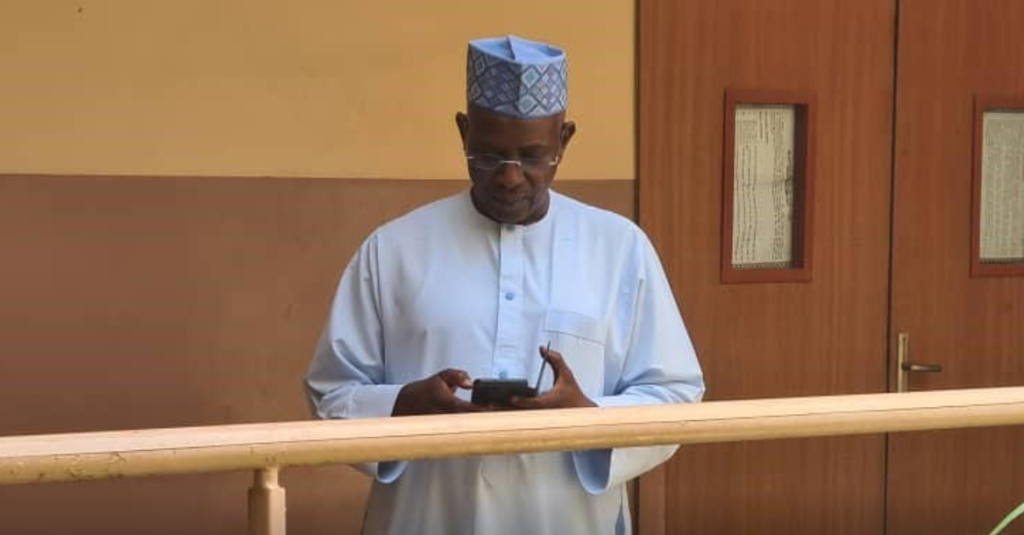The ongoing trial of former AMCON Managing Director, Ahmed Kuru, and four others took a significant turn with the testimony of Muhammed Abbas Jega, a former Executive Director at AMCON. Jega’s testimony centered around the substantial debt Arik Air owed AMCON, a debt that ultimately became a non-performing loan despite initial assurances and significant financial interventions. The complex financial dealings between AMCON, Arik Air, and several banks, including Union Bank, formed the crux of the proceedings, highlighting the alleged misrepresentations and financial mismanagement that led to significant losses.
Jega initially stated that the loan acquired by AMCON from Union Bank and Bank PHB during the Eligible Bank Assets Purchase Programme was performing. However, under cross-examination, he retracted this statement, admitting that the N85 billion loan later became non-performing. This revelation exposed a critical discrepancy in the initial assessment of the loan’s viability, raising questions about the due diligence conducted by AMCON before acquiring the debt. Furthermore, Jega disclosed that AMCON injected an additional N11 billion into Arik Air as working capital and guaranteed intervention funds from the Bank of Industry, illustrating the extent of financial support provided to the struggling airline.
Despite these substantial financial injections, Arik Air was unable to meet its obligations to AMCON by the time Jega left the corporation. This failure underscores the gravity of the financial challenges faced by the airline and the ineffectiveness of the interventions. Jega, while admitting his involvement in these financial decisions, clarified that he never personally reviewed the loan purchase agreement, especially the portion relating to Union Bank, leaving a gap in his direct oversight of the transaction. This lack of direct involvement raised further questions about the internal processes and accountability within AMCON.
A key aspect of Jega’s testimony revolved around the alleged misrepresentation by Union Bank regarding the true status of the Arik facility. He claimed that Union Bank presented the loans as performing, even documenting a meeting in London to convey this impression. However, Jega stated that it was during this very meeting that the issues with the loan became apparent. This allegation of misrepresentation placed Union Bank at the center of the controversy, suggesting their role in potentially misleading AMCON about the financial health of Arik Air. However, Jega’s inability to explain why he didn’t escalate this issue to AMCON’s board or the Central Bank of Nigeria raised concerns about his own role in the unfolding events.
Beyond the Union Bank loan, Jega confirmed that Arik Air and its promoter had other outstanding loan obligations to AMCON, further complicating the financial web surrounding the airline. This revelation suggested a deeper and more intricate financial relationship between AMCON and Arik Air, extending beyond the initially discussed loans. The extent and nature of these additional obligations remain unclear, but they further underscore the financial precariousness of Arik Air’s situation and the potential exposure of AMCON.
An intriguing detail emerged regarding a consultancy offer Jega received from Arik Air’s chairman. While he acknowledged the offer, Jega stated that he was advised to decline it due to the existing challenges AMCON was facing with the airline. This offer and his subsequent refusal raise ethical questions and potential conflicts of interest, highlighting the complexities of the relationships between the involved parties. While Jega maintained that his professional dealings with clients remained above board, the timing of the consultancy offer raises questions about the propriety of such an arrangement considering AMCON’s ongoing involvement with Arik Air.
The trial continues to unravel a complex financial narrative involving significant sums of money, alleged misrepresentations, and questionable financial management. The testimony of Muhammed Abbas Jega, while shedding light on certain aspects of the case, also raised further questions about the roles and responsibilities of the involved parties. With the trial adjourned to July 1, 2025, the legal proceedings promise further revelations and scrutiny of the intricate financial dealings between AMCON, Arik Air, and the other involved entities. The court will continue to delve into the details of the alleged fraud, seeking to determine the truth behind the complex financial transactions and hold the responsible parties accountable.


